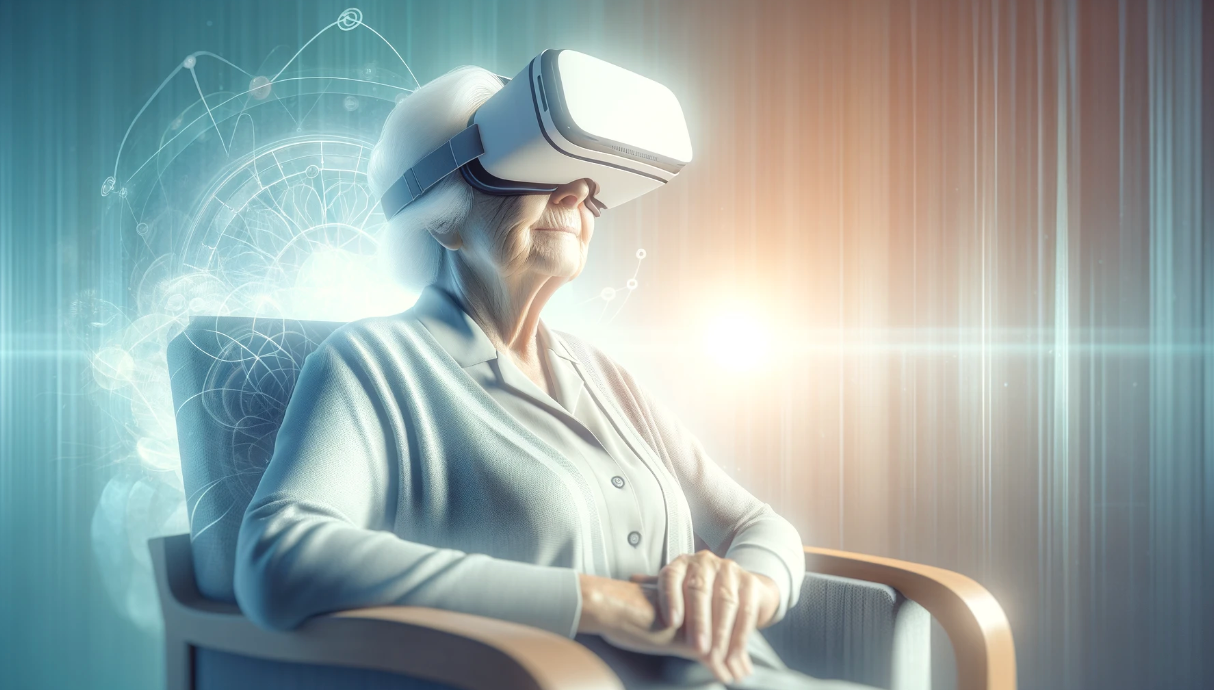Virtual Reality (VR) therapy is transforming the way senior citizens experience the world, offering them a unique opportunity to revisit cherished memories, connect with loved ones, and engage in activities that seemed beyond reach. This innovative approach not only promises entertainment but significantly enhances the mental and emotional well-being of the elderly, making it a remarkable tool in the realm of senior healthcare.
Key Highlights:
- VR therapy allows seniors to relive past experiences, visit distant places, and enjoy bucket-list activities virtually.
- Studies show a reduction in feelings of isolation and an improvement in mood among seniors who engage in VR experiences.
- VR tools are designed with the senior user in mind, ensuring ease of use and accessibility.
- The technology has also proven beneficial for caregivers, offering training tools and reducing stress.
The Power of Virtual Memories and Connections
Rendever, a leading platform in VR for seniors, leverages the technology to combat social isolation by facilitating shared experiences. Seniors can take virtual trips down memory lane, revisit their childhood homes, or even experience the thrill of bucket-list adventures without leaving their care facility. This not only aids in reminiscence therapy but also fosters new connections and friendships among residents.
Enhancing Well-being and Reducing Isolation
The Massachusetts Institute of Technology AgeLab has found that older adults who use VR systems report feeling more positive about their health and emotions. They are less likely to feel depressed or socially isolated compared to those who consume similar content via traditional media. A study conducted at a senior care residence in Minnesota revealed that nine out of ten elderly adults felt more relaxed and rated their well-being higher after VR sessions.
User Acceptance and Future Intentions
A study from Taiwan explored the acceptance of VR among the elderly, focusing on its usefulness and ease of use. The findings indicated that a significant majority of participants found VR to be enjoyable and useful, improving their mood and motivation for daily activities. Furthermore, a considerable number expressed their intention to use VR in the future, highlighting the potential for widespread adoption of this technology among older populations.
Infrastructure and Program Management
Implementing a VR program in a senior care setting requires careful planning, from choosing the right equipment to ensuring a robust Wi-Fi infrastructure for seamless operation. Maplewood Senior Living’s successful VR initiative, in partnership with Rendever, underscores the importance of selecting programs that cater specifically to seniors’ needs, ensuring the technology is both engaging and therapeutic.
Virtual Reality Therapy stands at the forefront of innovative care for senior citizens, offering more than just a diversion from daily life. It provides a portal to a world where the constraints of age and mobility do not limit the capacity for joy, connection, and exploration. As VR technology becomes more accessible and tailored to the elderly, it holds the promise of significantly enhancing the quality of life for seniors, allowing them to live their twilight years with a sense of fulfillment and connection previously unimaginable. This unique blend of technology and therapeutic practice represents a hopeful future where aging is not synonymous with loss but with new, immersive experiences.







